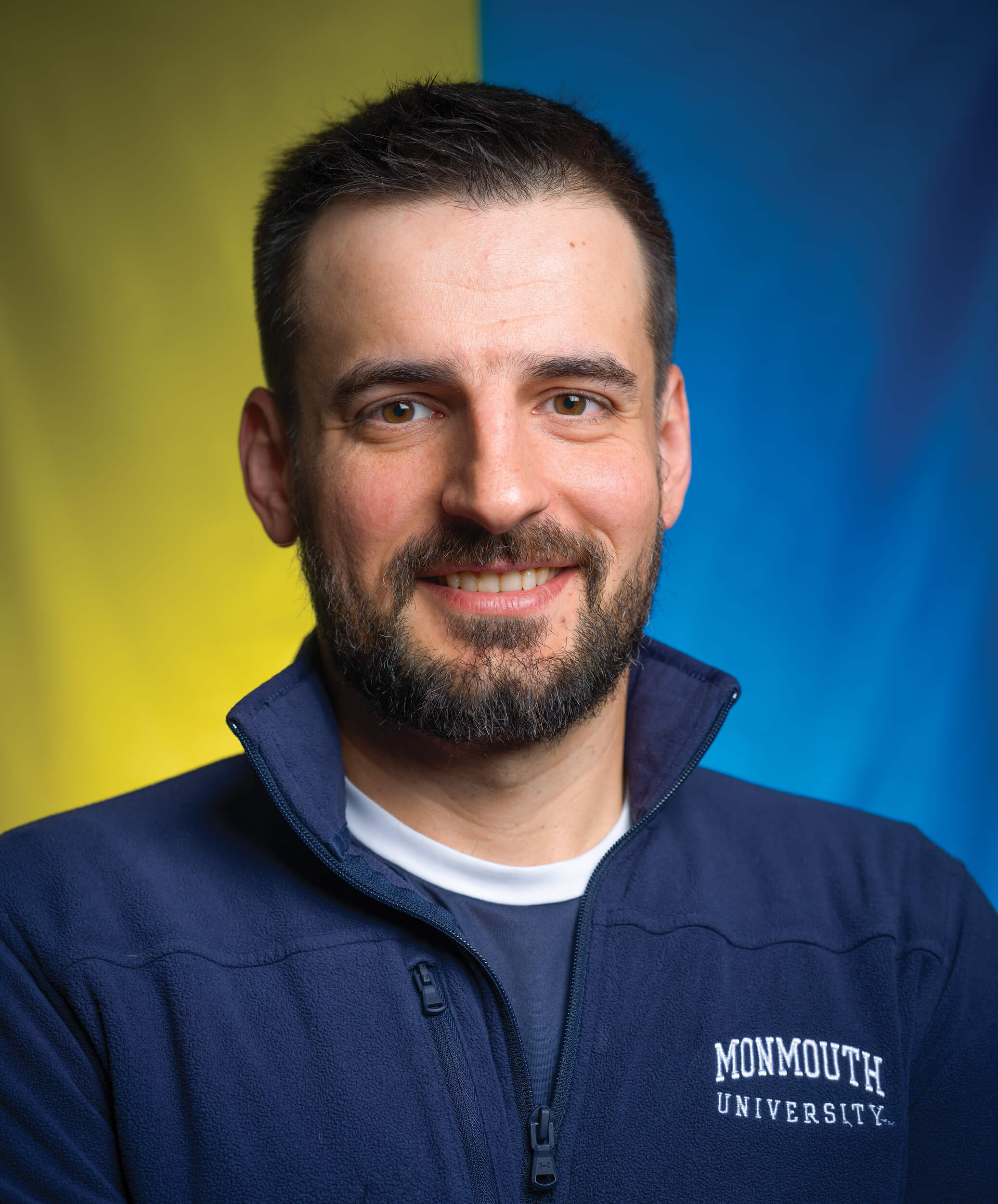
Racing for Resilience
Graduate student Oleksandr Nedoruba organized Ukraine’s first extreme triathlon, inspiring hope in the country’s citizens during their ongoing war with Russia.
Oleksandr Nedoruba had an idea. It was August 2019, and he had just completed the legendary Norseman Xtreme Triathlon, an Ironman-like competition in which participants must swim 2.4 miles in the chilly Hardangerfjord and bike 117 miles through mountainous terrain before running a marathon (26.2 miles) to the top of Norway’s Mount Gaustatoppen (elevation: 6,178 feet).
An extreme sports junkie who had already conquered Mount Elbrus (Russia and Europe’s highest peak) and swam the Bosporus Strait (the channel in Istanbul that bridges the European and Asian continents), Nedoruba had tried for five years to land a spot in Norseman, the event that many endurance athletes consider “the father of extreme triathlons.”
Now, not only had he achieved his goal, but he had done so with distinction. By finishing 72nd out of 250 competitors, Nedoruba had secured one of the coveted black t-shirts given to participants who complete the race portion at its highest altitude. It’s a badge of honor in the triathlete community signifying someone has completed the world’s most extreme competition under the toughest circumstances.
As Nedoruba reveled in the glory of his achievement, a thought crossed his mind: Ukraine should have its own extreme triathlon. After all, his native country had every bit as much rugged beauty as Norway did—and the prospect of experiencing it while mapping out courses for each leg of the race excited him. Beyond that, the challenge of creating such an event in his homeland intrigued Nedoruba.
By the time the competition he dreamed up that day finally did take place, four years later, much had changed in Ukraine. So too had the rationale for holding it. What started as an undertaking to create a race that could challenge competitors’ physical endurance had become an event that he hoped would inspire Ukrainian perseverance.
Nedoruba, who grew up in Zhovtneve (now Vakulove), a small village in Ukraine’s Dnipro region, says his parents instilled a strong sense of right and wrong, and justice and morality, in him and his siter, Yuliia, from an early age.
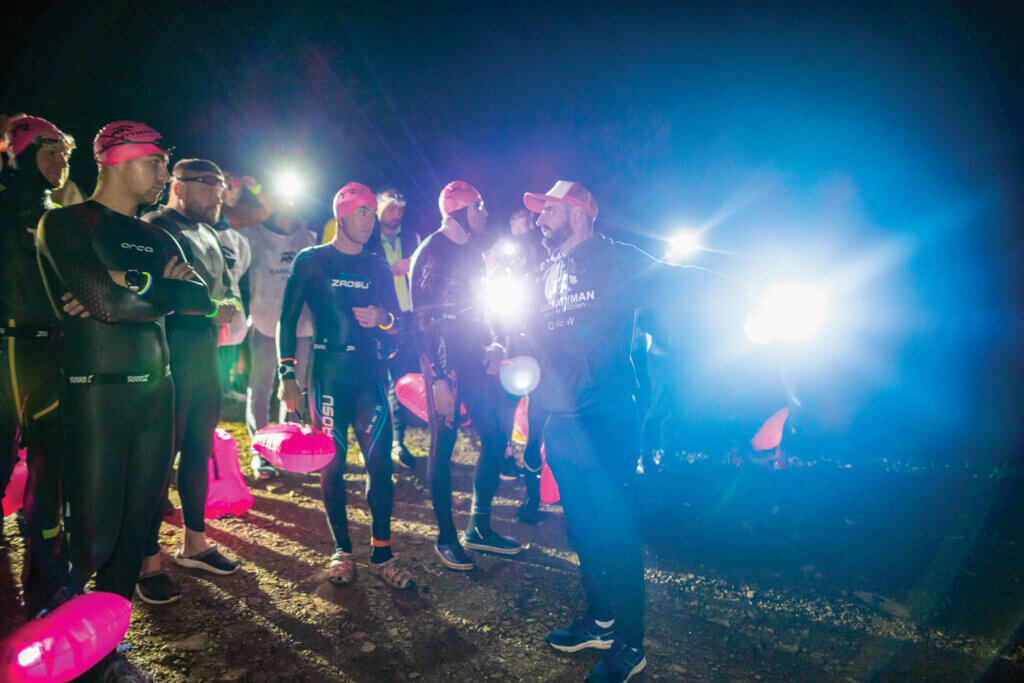
“We were taught that if someone needs help, and you can help, then you should help,” says Nedoruba. “It’s how we were raised.”
On some level, he says, those formative lessons played a role in his enrolling at National University Odesa Law Academy, where he earned his bachelor’s and master’s degrees, and eventually led him to a career as an investigator and prosecutor in Ukraine’s Office of the Prosecutor General.
“It was great to be helpful to my country and its citizens,” says Nedoruba, “and it was an honor to help effect changes in law enforcement legislation.”
Nedoruba says that he started competing in endurance events because he enjoyed the mental and physical recharge that the training provided him as well as the self-discipline and motivation it instilled in him. He also loved exploring the world while meeting like-minded individuals through the competitions.
Landing a spot in Norseman “changed my life,” he says. “I met such motivated people … and saw how mentally and physically strong they were.”
Invigorated and inspired by what he describes as the “great energy exchange” that took place among contestants at Norseman, Nedoruba knew that he wanted to create a similar experience in Ukraine. When he shared the idea with Yuliia, her response was, “Oleks, that’s crazy—but it’s great.”
Over the next two years, Nedoruba went about making his idea a reality. One of the first hings to do was determine the course. There’s an unwritten rule with extreme triathlons that the finish line should be at the host locale’s highest point, says Nedoruba. That put his race’s endpoint on Mount Hoverla, in the beautiful yet wild Carpathian Mountains in western Ukraine. From there, Nedoruba worked backwards to scout and test potential courses for the race’s swimming, cycling, and running legs.
Together with his sister, he recruited a team of volunteers that could help with rules, registration, securing sponsors and partners, acquiring permits, handling security, and promoting the event.
There’s another unwritten rule with extreme triathlons, says Nedoruba: The race’s name should be derived from the locale in which it’s run. Norway has its Norseman. Scotland its Celtman. Ukraine would have Karpatyman, the team decided, using the Ukrainian spelling for the Carpathian Mountains.
“For us, Karpatyman means someone who endured the toughest, most extreme triathlon finishing on Ukraine’s highest mount,” says Nedoruba.
With the course set and most of the logistics worked out, Nedoruba and his team put out the word: Ukraine’s first-ever extreme triathlon would take place on May 7, 2022.
On Feb. 24, 2022, Russia invaded Ukraine, setting off the largest ground war in Europe since World War II. By that point, Nedoruba had already moved to the United States, where he was working toward a Master of Arts in Criminal Justice at Monmouth. After the invasion, he says, the consensus among the team was that Karpatyman needed to be pushed back.
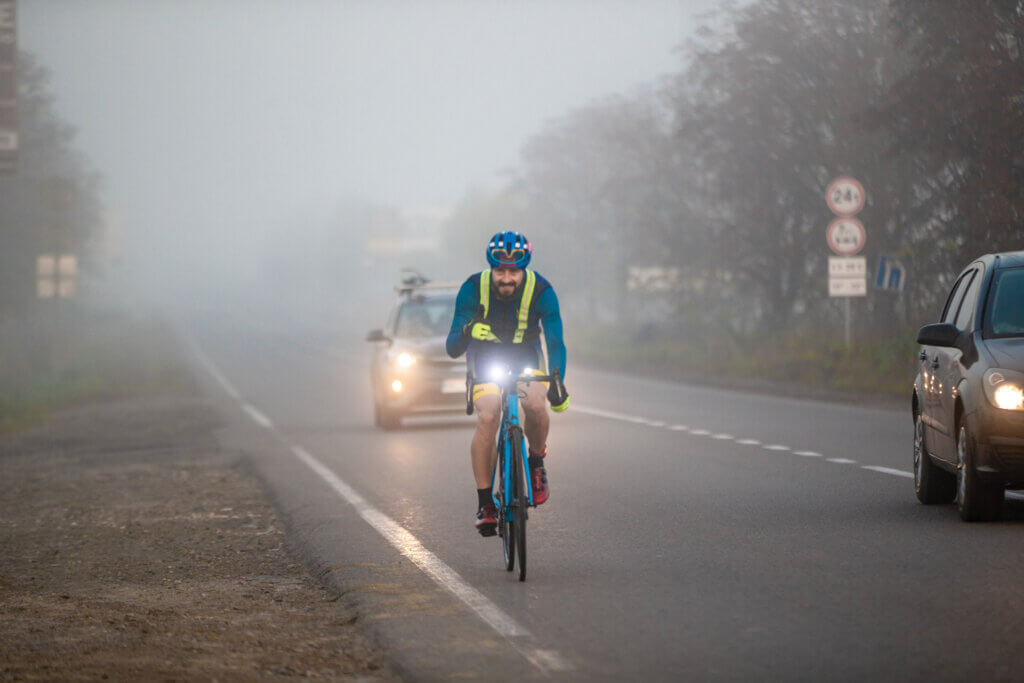
“We thought the war would be over in a few months, so we postponed until October 2022,” he says.
When the fall arrived and the conflict was still going, the team postponed again. But this time, Nedoruba says, he started hearing pushback from Ukrainians who had registered to compete.
“Please do not postpone Karpatyman anymore,” he says people told him. “We really need this race. Despite the stress of war, this is something that motivates us to wake up in the morning, to stay strong, to keep going to work.”
He heard similar sentiments from the international registrants.
“We want to support Ukraine. We want to support Ukrainians,” Nedoruba says he was told. “You need to make this race happen.”
Realizing the significance that holding Karpatyman could have, Nedoruba and his team eventually decided the race must go on. It would still challenge participants with its demanding course. But now it carried a deeper importance. It could provide Ukrainian triathletes with a sense of purpose, and it could make a difference in the lives of others, particularly the children, who were affected by the conflict.
Furthermore, Karpatyman could help promote the country’s rich culture—the very thing Ukrainians were fighting to protect, says Nedoruba.
On Oct. 14, 2023, 23 triathletes from across Ukraine as well as from Poland and Great Britain, accompanied by dozens more supporters and sponsors, gathered in the predawn hours near the rural village of Mereshor, in Ukraine’s Zakarpattia region, for the start of Karpatyman. After a 2.4-mile swim through the 53-degree F waters of the Tereblia-Ritske Reservoir, contestants biked 113 miles across 7,200 feet of hilly ascents to Tatariv, in the Ivano-Frankivsk region. From there, they ran 26.2 miles to the top of Hoverla (elevation: 6,762 feet).
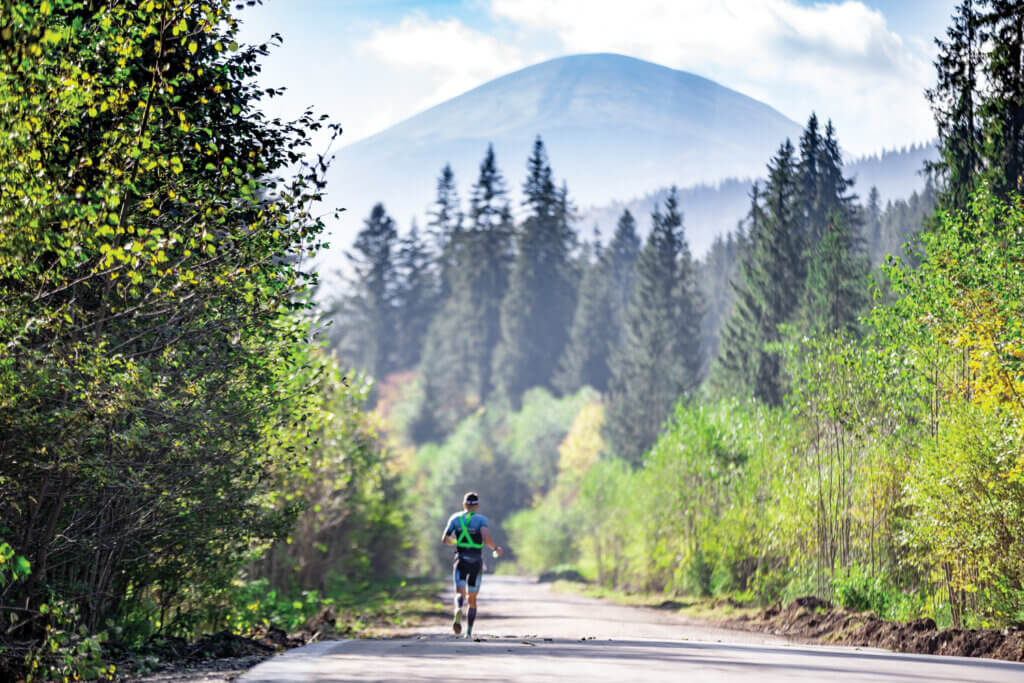
Karpatyman accomplished everything the team hoped it would and more, says Nedoruba.
It gave participants “the brightest few days in this darkest time in the history of Ukraine,” he says. It also showed the children who have been living through the trauma of war that they can still “be physically and mentally strong … and enjoy exploring nature and their culture.” And it boosted the local economy by attracting visitors to the family-run hotels, restaurants, and shops throughout the region, an area that has hosted displaced migrants from all over Ukraine.
As Viktor Mykyta, the governor of the Zakarpattia region, wrote in a letter thanking Nedoruba and the team for holding Karpatyman, “This event has acted as a source of inspiration for Ukrainians to remain resilient and continue fighting for their freedom.”
Nedoruba, who traveled to Ukraine for last fall’s race, says that returning home “was a great and sad experience at the same time.”
“You’re happy because you’re home, you’re seeing your family, [and] spending time with friends,” he explains. “But when you hear the sirens, and see all the ruined buildings, it’s just unbelievable. I still cannot understand how this war happened … [and] how people can dehumanize [one another] because of propaganda, or money, or power.”
Back in the U.S., he follows the ongoing conflict by keeping in touch with his mother, a schoolteacher who still lives in Ukraine, as well as by following Ukrainian and Russian news outlets. “I compare what’s right, what’s wrong, who’s lying, who’s telling the truth.”
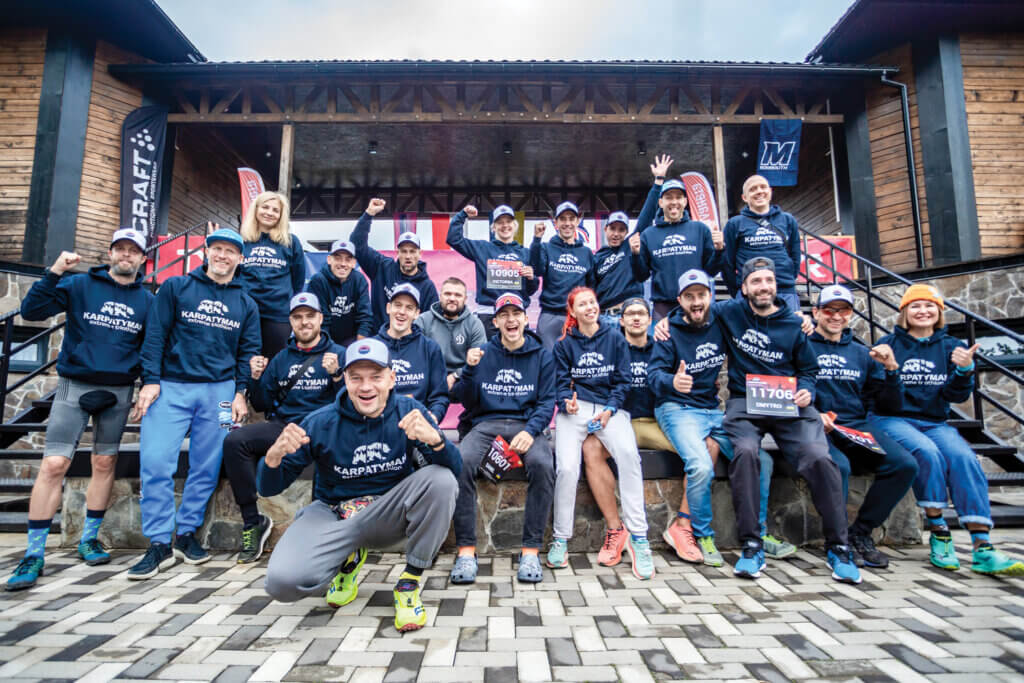
Because of the success of last fall’s Karpatyman, Nedoruba and his team were inspired to organize not one but two races for this year. The first, a half triathlon held June 1, 2024, served as an “early season builder race.” The second, a full triathlon on the same course as last year’s, is scheduled to take place on Oct. 12, 2024. This year’s races will have an increased focus on helping the children of the region, with a portion of the registration fees to be allocated to provide sports equipment for local schools.
“We believe that it will help them with what they are going through,” says Nedoruba.
Beyond that, he says, the team believes that by continuing the Karpatyman tradition, they are doing what they can to demonstrate “true Ukrainian spirit, culture, and strength—the inspiration our country needs.”